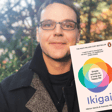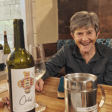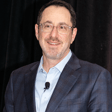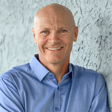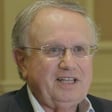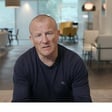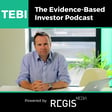
TEBI podcast 46: John Treharne on building businesses and the spirit of sport
In the sixth of a series of 12 TEBI episodes looking at meaning and money during later careers or second lives, Jonathan Hollow interviews serial entrepreneur and Gym Group founder John Treharne.
John has built not one, but two enormously successful businesses. The most recent of these businesses, Gym Group, was begun from a single site when he was in his early fifties. Less than 20 years later, it has 231 branches all around the UK, and more than 800,000 members. John speaks in the interview about the origins of his entrepreneurial streak, from his racquet sports career in his early twenties. He played squash for England. He sees the parallels between winning in squash and his enduring will to build, succeed and motivate. But social and charitable concerns have also been woven throughout his career, and he has tried, as he tells Jonathan, not to be changed by wealth and success. He believes in staying close to your roots.
This podcast series has been developed with financial planning firm Mulberry Bow. Based in London, they offer a highly personalised service to around 150 individuals and families. Robin Powell and Jonathan Hollow are very grateful for their enthusiastic support for "Second Lives”.
Links to key mentions in this podcast:
Transcript: - https://www.evidenceinvestor.com/john-treharne-entrepreneurship/ --
Gym Group - https://www.thegymgroup.com/ —
To donate to Jigsaw South East - https://www.jigsawsoutheast.org.uk/get-involved/donate/ —
Mulberry Bow financial planners: https://mulberrybow.com/ —
How To Fund The Life You Want: http://tinyurl.com/how2fund --






